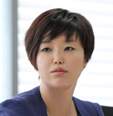[tbs eFM] 2016-01-07
“Saudi Arabia severed ties with Iran”
Q.1 After Saudi Arabia severed ties with Iran, Sunni-led countries such asa Bahrain, Sudan, UAE and Qatar have also either cut or downgraded ties with Iran. Do you think more countries will follow suit? What’s your take on this?
Q2. Saudi Arabia and Iran are on opposite sides in the conflicts in Syria and Yemen. Do you think Syria and Yemen will fall victims to the Saudi-Iran crisis?
Q3. Saudi Arabia and Iran are threatened by the same enemy, the Islamic State. Do you think the Saudi-Iran conflict will hinder the fight against the Islamic State?
Q4. How do you think the standoff will impact the Iran Nuclear Deal that was reached last year?
Q5. Global oil prices have dropped after new tensions between two of the world’s top producers erupted. How will the Saudi-Iran crisis affect the tumbling oil prices?
Q6. Do you think escalating tensions in the Middle East will have any impact on South Korea?
Q7. What can we expect to see in the days ahead? Do you think there will be any head-on military confrontation between Saudi Arabia and Iran?
Q8. Do you think relations between Saudi Arabia and Iran can be improved by peaceful talks? Final thoughts?

 Facebook
Facebook Twitter
Twitter